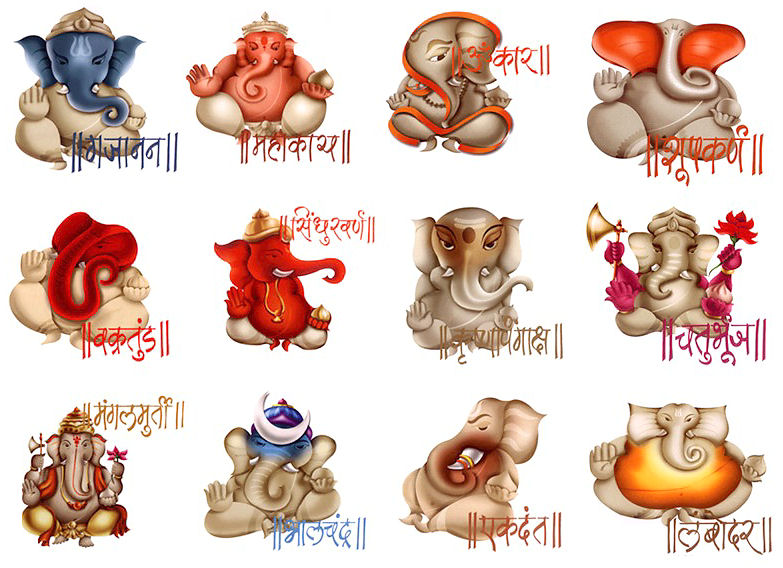Lord Ganesha and Lord Kartikeya is the son of Lord Shiva and Goddess Parvati. Lord Ganesha, being the elder son, was very intelligent and wise in nature. On the other hand, Lord Kartikeya was very impatient and short tempered. They both possessed different nature and different physical qualities, thus some time they had serious arguments or fight.
Once they had a serious argument on their strength and wisdom. So they approached to Lord Shiva for final settlement and justice. After hearing both of them Lord Shiva declared that among the two, who will first complete circling the universe would be the winner.
Without any delay Lord Kartikeya sat on his “Vahana”, the peacock, and started his journey round the universe travelling across the mountains, the sea and the rest universe. But big bellied Ganesha knew that with his “Vahana” the little rat, he can’t win the race. So he stopped and thought for a while. Suddenly he got an idea; he made Lord Shiva and Parvati to sit together and walked around them thrice. When Kartikeya returned after successfully completing his round, he saw Ganesha sitting in lap of his father. He could not understand why Ganesha is sitting rather than completing his task and blamed Ganesha for being unjust. Lord Ganesha told him that he had completed his round not once but thrice. Ganesha said his parents are his Universe, thus he proved himself by circling them. Lord Shiva was very pleased with Ganesha and boon him with the first one to be worshipped by people before starting any work. But Kartikeya lost his patience and thought that his father especially his mother was partial to him. He took a pledge, not to see any women face specially his mother face. He kept his words that’s why in many temples of Lord Kartikeya women’s are not allowed to enter.



























